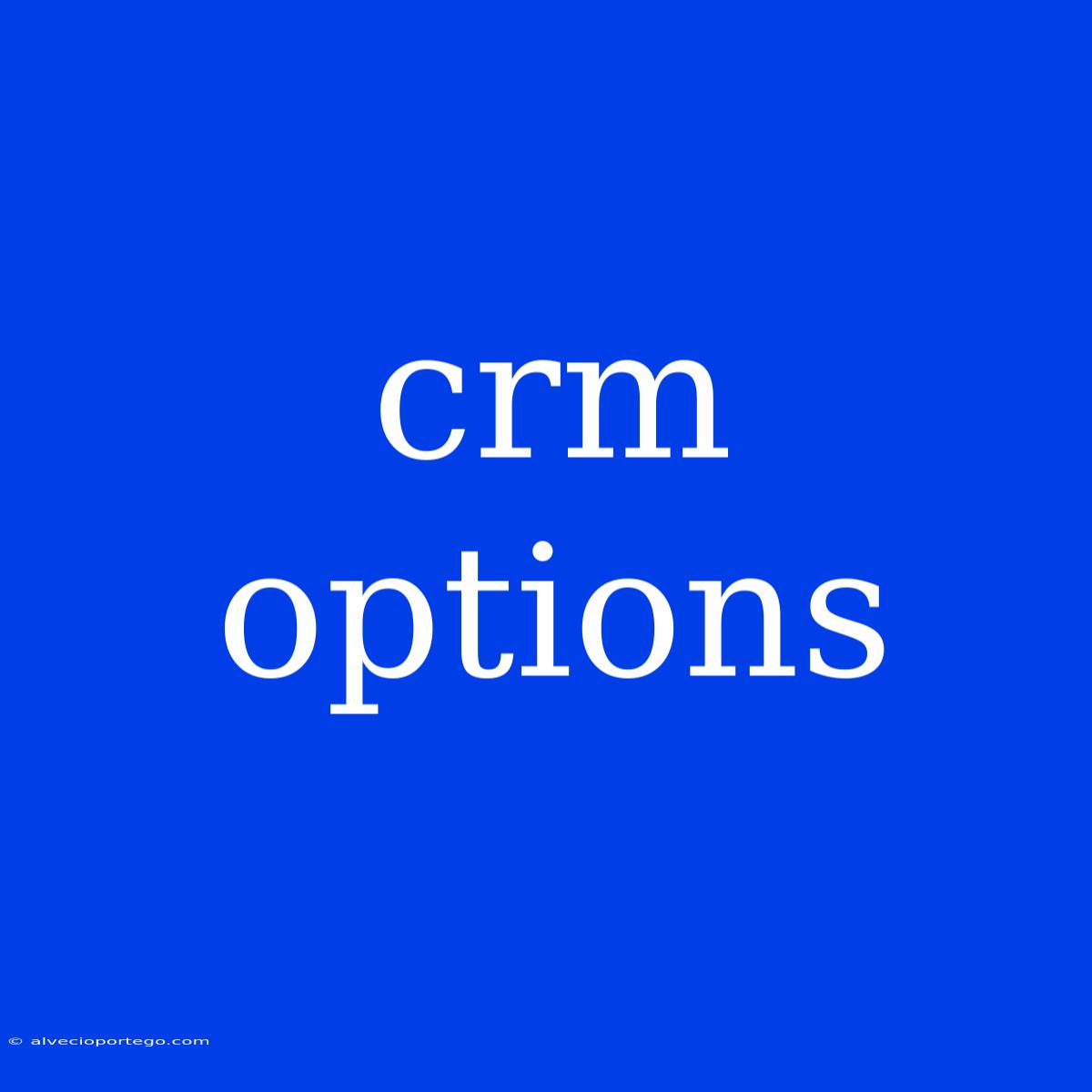CRM Options: Finding the Perfect Solution for Your Business
Customer relationship management (CRM) is a vital tool for any business looking to enhance customer engagement, streamline operations, and boost sales. But with so many options available, choosing the right CRM can feel overwhelming. This article will guide you through the different CRM options, helping you identify the best fit for your specific needs.
Types of CRM Systems:
1. On-Premise CRM:
- Definition: Software installed and maintained on your company's servers.
- Pros: High level of control and customization, increased data security.
- Cons: Requires significant upfront investment, ongoing maintenance costs, limited scalability.
- Example: SAP CRM
2. Cloud-Based CRM:
- Definition: Software hosted and accessed online, typically through a subscription model.
- Pros: Affordable, scalable, easy to implement, accessible from anywhere.
- Cons: Reliance on internet connection, limited customization options, potential data security concerns.
- Example: Salesforce, Zoho CRM
3. Open-Source CRM:
- Definition: Free to use and modify, with source code available.
- Pros: Flexibility, cost-effective, community support.
- Cons: May require technical expertise, lack of vendor support, potential security vulnerabilities.
- Example: SugarCRM, Dolibarr
4. Mobile CRM:
- Definition: Designed for mobile devices, enabling access to customer information and functionalities on the go.
- Pros: Increased accessibility, improved productivity, real-time data updates.
- Cons: Limited functionality compared to desktop versions, potential compatibility issues.
- Example: Salesforce Mobile, Zoho CRM Mobile
5. Social CRM:
- Definition: Integrates social media channels into CRM, allowing businesses to engage with customers on social platforms.
- Pros: Improved customer engagement, valuable insights into customer behavior, enhanced brand awareness.
- Cons: Requires specialized skills and tools, potential for negative feedback, data privacy concerns.
- Example: Hootsuite, Sprout Social
Key Features to Consider:
- Contact Management: Organizing and managing customer data.
- Sales Automation: Automating sales processes like lead qualification, opportunity tracking, and forecasting.
- Marketing Automation: Creating and managing targeted marketing campaigns.
- Customer Service: Handling customer inquiries and resolving issues.
- Reporting & Analytics: Gathering insights and tracking performance metrics.
- Integration: Connecting with other business applications like email marketing, accounting, and e-commerce.
Factors to Consider When Choosing a CRM:
- Industry: Select a CRM tailored to your industry's specific needs.
- Size of Business: Choose a CRM that scales with your business growth.
- Budget: Consider upfront costs, ongoing subscription fees, and implementation expenses.
- Technical Expertise: Evaluate your team's technical capabilities and the CRM's complexity.
- Data Security: Ensure the CRM offers robust data security measures.
- Customer Support: Look for a CRM with responsive and comprehensive support.
Conclusion:
The right CRM can significantly enhance your business operations and customer relationships. By carefully evaluating your needs and considering the factors mentioned above, you can choose a CRM system that aligns with your goals and drives success.

